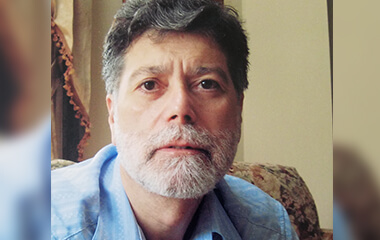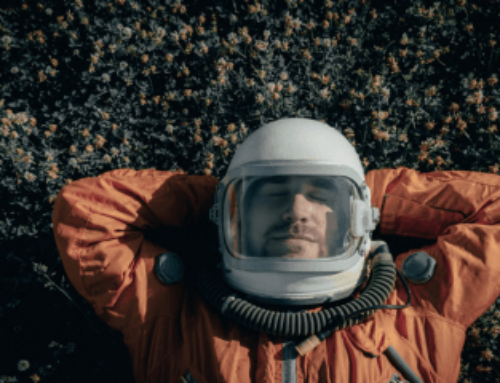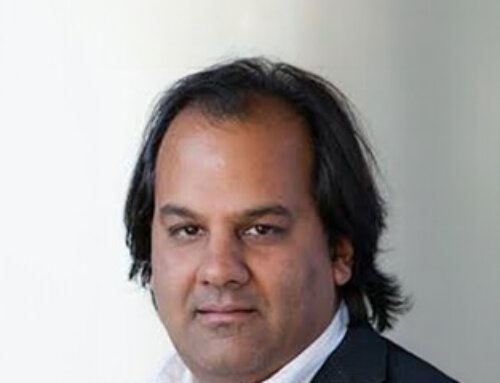Army veteran, retired professor, and author Dr. Francesco Ancona lives a life of exploration and learning. Fascinated by sleep and dream interpretation, Dr. Ancona inspired students’ curiosity for more than 30 years and penned everything from scholarly texts to detective novels.
Tell us about your educational and professional background.
After completing my military duty, I studied American studies, English, and comparative mythology. I hold a Doctor of Arts from St. John’s University.
Once I began teaching college courses, my students motivated me to continue learning. I pursued my second doctorate, a Doctor of Medical and Health Humanities, at Drew University, which allowed me to study psychoanalysis and introduced me to medical ethics and nomenclature. I completed my clinical practicum at St. Barnabas Hospital in New Jersey and additional psychoanalytic training at the Academy of Clinical and Applied Psychoanalysis. I also completed training as a consulting hypnotist.
For over 30 years, I taught courses on archetypes, psychoanalysis, literature, and dream interpretation. I became fascinated with the work of neurologists exploring what happens in the brain during sleep. Now that I’m retired, I teach courses to inform seniors about the importance of quality sleep to their health, mortality, and well-being.
What led to your fascination with sleep, and dreams in particular?
When I began teaching courses on the function and interpretation of dreams, I realized how important they were to our physical and mental health. As each year progressed, I became more involved with the relationship of dreams and sleep.
Remembering Hamlet’s speculation, “to sleep perhaps to dream,” I wondered what about “to dream perhaps to sleep”? I recalled one of the classic psychoanalytic dream theories that the “basic and teleological function of dreaming is to protect sleep” and wondered if I didn’t have the cart before the horse.
I read all the studies and texts I could find on sleep and incorporated them into my lectures. I now present two different courses on dreams and sleep.
As a veteran, how did your experience in the Army impact your career choices?
Serving in the Army gave me the opportunity to attend college after being discharged. It also awakened me to living a life unselfishly. I also had the opportunity to meet people from other cultures. I was born and raised in Manhattan, where I experienced various cultures, but the Army gave me the chance to visit their worlds.
You’ve written several scholarly books. Tell us about them and what you hope readers take away from them.
The concept of a montage is central to my scholarly writing. My first book, based on my doctoral research, was published as, “Writing the Absence of the Father.” I began lecturing on the “absent father” and wrote my second book, “Crisis in America: Father Absence.”
Influenced by comparative mythology and my search for the beginnings of the human experience, I wrote my third book, “Myth: Matter of Mind?” Then, inspired by my exploration of primitive art and artifacts, I wrote, “Femina Sapiens: Were Women the First Truly Thinking Human Beings?”
Over the last three decades, as my interests shifted to dreams, my D. Med. H. dissertation was on the health benefits of dreaming. This led to the next book, “The Power of Dreams,” in which I outlined the mental, physical, and spiritual nature of dreams.
I also co-authored the text, “He Says/She Says Shakespeare.”
You also enjoy writing as a hobby. Can you tell us about your detective and suspense fiction novels?
Writing detective and suspense novels is yet another part of the montage, juxtaposing my background in literature, psychoanalysis, comparative mythology, and dreams. My books combine multiple genres of mystery with mythology, dream sequences, and homages to classics in the field. The series includes “Eternal Feminine,” “The Art of Fusion,” “What Is, It Wouldn’t Be,” “Die Will Be Done,” and “None More Beautiful Than Death.”
Though you’re retired, you continue to teach. What’s your message to those who enroll in your sessions about sleep and dreams?
My message is a simple one: Sleep and dreams are nature’s most important survival tools. The information I provide is geared to awakening attendees to the need to do something about achieving the goal of a vibrant, healthy waking life rounded by nourishing quality sleep.
I cover FAQs about sleep and dreams, explain a number of the most prevalent parasomnias, and instruct them on the importance of seeking out professional sleep physicians and specialists.
What do you find most interesting about sleep?
When I was young, I never gave a thought to sleep. I’d abuse waking time, then crash and “binge sleep” without an inkling of what I was doing to my future self.
As a professor, I wanted my young students to understand how important sleep is to them and how just as they are “what they eat,” they are the products of how they sleep. Now that I’m working with seniors, I find almost the same situation.
What’s most interesting about sleep, to me, is how essential it is! Just as words provide the structure for all our thoughts and ideas, quality sleep is the keystone for so much of our physical and mental health and well-being.
This article appeared in volume eight, issue two of Montage magazine.









